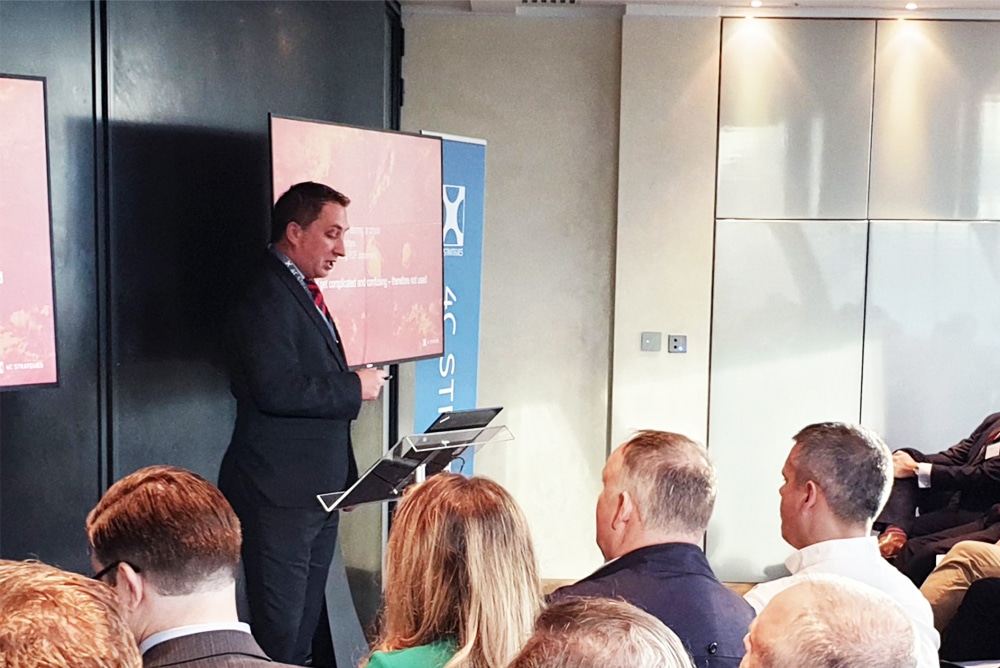This website uses cookies so that we can provide you with the best user experience possible. Cookie information is stored in your browser and performs functions such as recognising you when you return to our website and helping our team to understand which sections of the website you find most interesting and useful.
Principal Consultant Ben White reflects on lessons learned from the last 18 months of remote crisis management training

Over the last 18 months, 4C Strategies have been kept very busy helping organisations, particularly at the strategic level, develop their crisis management and decision-making capability. Principal Consultant Ben White describes the process of leading Crisis Decision Making Training remotely, and the outcomes he has observed.
From preparing for, to managing crises
Looking back to March 2020, 4C Strategies was delivering crisis management training and exercises across Europe, ranging from simple discussion-based exercises to full distributed simulation exercises. As the pandemic took hold on organisations, there was a rapid switch from preparing and training for a crisis to actually managing one day-to-day.
This meant that all our activity stopped, and more importantly we were no longer able to visit our clients in person to deliver these exercises and training events. The 4C crisis management consulting teams looked into how we could take what we had been doing these last few years and be able to still continue to develop capability remotely.
We also had one key thought in my head when talking to customers. To use the analogy of an athlete, just because the athlete is at the Olympics and performing in their competition, it does not mean that they stop training, rehearsing, practicing and developing between each race. For Crisis leaders we feel it should be no different. So we developed further a very simple training session to act as the ‘gym’ for the crisis leader, and called it the Decision Making Exercise.
What is a Decision Making Exercise?
Decision Making Exercises are deceptively simple decision-making exercises, usually consisting of no more than a few paragraphs of text describing the situation. Expert 4C Consultants facilitate each session and place the participants in the role of the Crisis Management Team of an organisation they know nothing about. This is a deliberate move to ensure everyone can approach the situation from an equal standpoint and no organisational roles, ranks, or seniority can get in the way.
The objective here is to follow the process and not to see who shouts loudest first. The situation develops into a significant issue that adversely affects the organisation. Participants use the 4C Strategies decision making model to guide them through the identification of the Facts, Assumptions, Direction, and then who, what and how to communicate. The decision-making model forces the participants to think in a logical and joined up way and importantly captures the rationale behind the decision making that takes place.
We have now developed four or five scenarios that grow in complexity. Each one designed so that there is no right or wrong answer, just different ways to approach the problem depending on the assumptions that are collectively made by the crisis management team. From contamination of a production line, through to data breaches, cyber attacks and building fires, each scenario is designed and facilitated to bring out the best in the participants. We use a growing number of software tools to support the process and ensure it is as interactive as possible.
Key takeaways
Our team of experts at 4C have developed and honed these sessions over the last 18 months and made them fit for purpose in the new ways we now work. They are designed to be interactive, short, impactful, memorable and developmental. The effects on the participants have been profound, and here are some of the key takeaways we have observed:

The last 18 months of delivering these sessions has been a powerful experience for me as well. It has confirmed conclusively that with the right approach you most definitely can train people remotely to be better decision-makers. We have now seen it demonstrated powerfully in different sectors, organisations and team structures.
This experience has also confirmed, however, that there are no easy shortcuts. It requires investment in time and effort, but we have no doubt it is worth that investment. Ultimately the participant, and therefore the organisation from which they are from, will be much better prepared and have a much greater capability to meet the challenges they will face.

